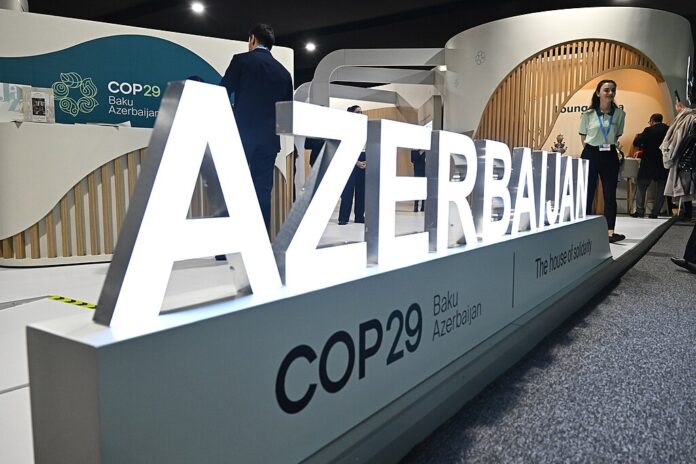COP29 climate action funding: African countries demand increased support for sustainability goals in Baku
World leaders are grappling with the urgent reality of climate change at the COP29 summit in Baku, where calls for COP29 Climate Action Funding echo throughout the conference. On day two, global figures gathered to address one of the most critical challenges of our time: securing a sustainable future for the planet. With scientists warning that the window to limit global temperature rise to 1.5 degrees Celsius is rapidly closing, the stakes have never been higher.
Opening the discussions, UN Secretary-General Antonio Guterres did not mince words, declaring that the world is on a “final countdown” to prevent catastrophic warming. With 2024 likely to go down as the hottest year ever recorded, Guterres urged nations to act decisively. “We are at a tipping point,” he cautioned. “Either we choose to mitigate these impacts now, or we face the consequences of inaction.”
But amid the fanfare and rhetoric, notable absences cast a shadow over the proceedings. The absence of major players like US President Joe Biden, China’s Xi Jinping, India’s Narendra Modi, and French President Emmanuel Macron has raised eyebrows, leaving other delegates questioning whether the world’s most powerful economies are truly committed to addressing the climate crisis. This absence of key G20 leaders comes at a time when developing nations are struggling to secure much-needed funding for climate adaptation.
African leaders demand action, highlight economic losses
A spotlight was thrown on Africa during the discussions, with leaders from the continent sharing stark realities of the economic devastation wrought by climate change. African countries, though among the least responsible for global emissions, are suffering disproportionately from the consequences.
Ethiopian President Taye Atske Selassie took to the stage to share his country’s ambitious green projects, aimed at reversing environmental degradation. In recent years, Ethiopia has embarked on a monumental reforestation drive, planting a staggering 40 million trees, which has helped expand the nation’s forest coverage to 23.6 per cent. These efforts, according to Selassie, have the potential to sequester up to 10 billion tonnes of carbon. However, sustaining such initiatives requires more than national commitment. “We have allocated 1 per cent of our national budget towards a Green Legacy Fund,” he announced, appealing for international partnerships to sustain this momentum.
Embed from Getty ImagesMeanwhile, Tanzania’s Vice-President, Philip Mpango, presented a grim picture of the economic toll that climate change is already exacting on his nation. He revealed that Tanzania is losing between 2 to 3 per cent of its GDP annually due to climate-related disasters. Without substantial funding, Mpango warned, Tanzania’s efforts to build climate resilience will fall short. “We need approximately $19.2 billion by 2030 just to meet our adaptation targets,” he noted, stressing that these are not just numbers but represent real lives and livelihoods at risk.
Adding to the chorus, Côte d’Ivoire’s Vice-President Tiemoko Meyliet Koné shared projections that are nothing short of alarming. Without urgent interventions, Côte d’Ivoire could see its GDP drop by 13 per cent by 2050, with nearly 2 million citizens potentially pushed into poverty. Koné called for swift international support, underscoring that climate change is not only an environmental issue but a threat to economic stability and social well-being.
Financing climate action: The summit’s core focus
One of the main objectives of COP29 is to secure a concrete agreement on funding for developing nations, which have been left to fend for themselves despite contributing the least to the climate crisis. For years, wealthier countries have been falling short of the promised $100 billion annually in climate finance, a commitment made over a decade ago. As a result, developing countries are demanding that pledges turn into tangible support.
The ongoing negotiations are proving to be a test of global solidarity. African leaders, in particular, are pushing for mechanisms that ensure funding reaches those who need it most. “We cannot continue to rely on promises alone,” Ethiopia’s Selassie said. “We need action and resources to protect our communities.”
Yet, as the talks progress, doubts remain about whether the world’s largest economies are willing to step up. The absence of key leaders has raised concerns about the depth of their commitment to supporting the most vulnerable nations.
Guterres’ final call: No more delays
UN Secretary-General Guterres concluded his address by urging world leaders to rise above the distractions and focus on what truly matters — the future of the planet. He called for an end to fossil fuel subsidies, accelerated investments in renewable energy, and a renewed focus on climate justice. “We must protect those who are bearing the brunt of a crisis they did not create,” Guterres asserted. His impassioned plea resonated with many in the room, especially representatives from the Global South, who are often left behind in climate negotiations.
The coming days at COP29 will be critical as participants strive to forge agreements that could define the next decade of climate action. With the clock ticking, there is increasing pressure for COP29 Climate Action Funding to secure the necessary resources to prevent a climate catastrophe. The world is watching to see if this summit will deliver the breakthroughs needed to protect our future.
Looking forward: Will COP29 deliver?
The remainder of the summit promises intense negotiations, as countries navigate the complex terrain of climate finance, emissions reductions, and sustainable development goals. For developing nations, securing concrete commitments on funding remains a top priority. But whether COP29 will live up to its potential or become another missed opportunity in the fight against climate change remains to be seen.
The eyes of the world are firmly fixed on Baku, where the decisions made could determine the planet’s fate. As the summit unfolds, leaders face an urgent question: Will they act boldly or let this moment slip away?
